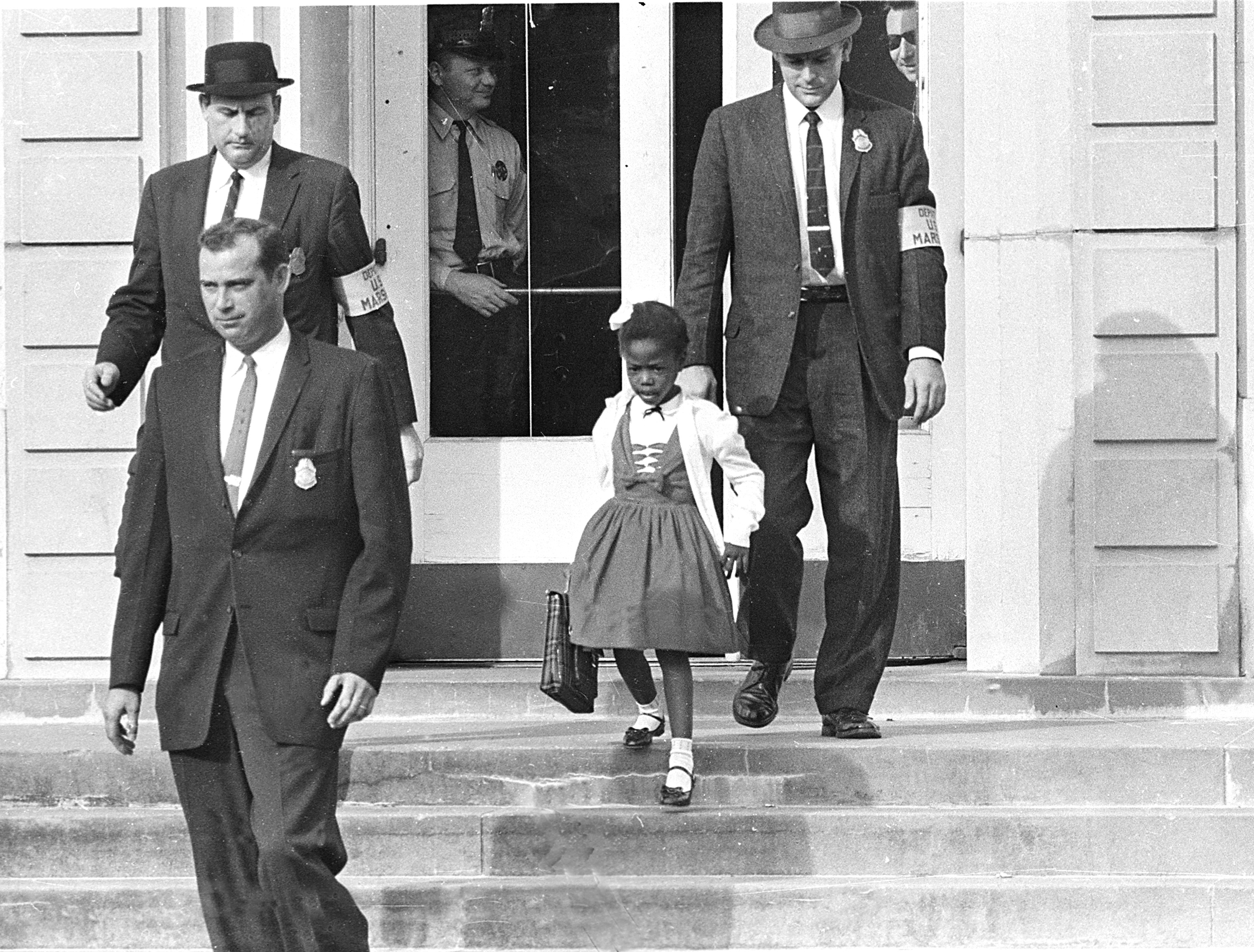Bridges, Ruby (1954-…), was one of the first African American children to integrate an elementary school in the Deep South region of the United States. In 1960, as a 6-year-old first-grader, she was the only Black student to enter the all-white William Frantz Elementary School in New Orleans.

Ruby Nell Bridges was born on Sept. 8, 1954, in Tylertown, Mississippi. She moved with her parents to New Orleans when she was 4 years old.
In 1954, the Supreme Court of the United States declared racial segregation in public schools to be unconstitutional (see Brown v. Board of Education of Topeka ). By 1960, however, several Southern states still had no Black students enrolled in public schools with white students. That year, a federal judge ordered that New Orleans public schools desegregate at the beginning of the 1960 school year.
During the spring of 1960, Bridges was tested and selected from a group of other Black kindergarteners by the New Orleans school board to participate in a school integration program. In the summer, the National Association for the Advancement of Colored People (NAACP) approached Bridges’s parents and encouraged them to participate in the integration program by enrolling Ruby as the first Black student at William Frantz Elementary School. The Bridges agreed because the school provided a better education and was closer to the family’s home than the all-Black elementary school that Ruby had attended during kindergarten. Ruby’s mother was also interested in helping to advance civil rights for other African Americans.
Three other African American girls—Gail Etienne, Tessie Provost, and Leona Tate—were also chosen to begin first grade at another all-white public school in New Orleans, McDonogh No. 19, on the same day as Bridges. But Bridges would be the only Black student at Frantz. Delay tactics from segregationists postponed integration until November. Bridges attended her old school until the judge’s order was enforced.
On Nov. 14, 1960, federal marshals escorted Bridges on her first day of school, where the child was met by angry mobs. Parents of white students boycotted the court-ordered integration and took their children out of the school. Many of the school’s teachers walked out. Bridges’s father and grandparents lost their jobs as a result of the controversy.
Bridges was taught by a white teacher named Barbara Henry, and she was the only student in her class for the entire school year. By the time Bridges entered second grade, Frantz had been successfully integrated. There were no more protests, and Bridges was able to attend the school unescorted. Later, Bridges graduated from Francis T. Nicholls High School (now Frederick Douglass High School), an integrated high school in New Orleans.
In 1999, Bridges founded the Ruby Bridges Foundation in New Orleans to promote tolerance through education. In 2001, she received the Presidential Citizens Medal, an award given to distinguished U.S. citizens. Bridges wrote about her first-grade experience in Through My Eyes (1999). This Is Your Time (2020) contains a letter from Bridges to young readers about injustices of the past and the present, as well as historical photographs.
See also Brown v. Board of Education of Topeka .
